Sometimes You Have to Say “No”
Bob Denney
A Step-By-Step Plan for Encouraging Partner Compliance with Administrative Tasks
Frederick J. Esposito, Jr.

Sometimes You Have to Say “No”
Bob Denney
A Step-By-Step Plan for Encouraging Partner Compliance with Administrative Tasks
Frederick J. Esposito, Jr.
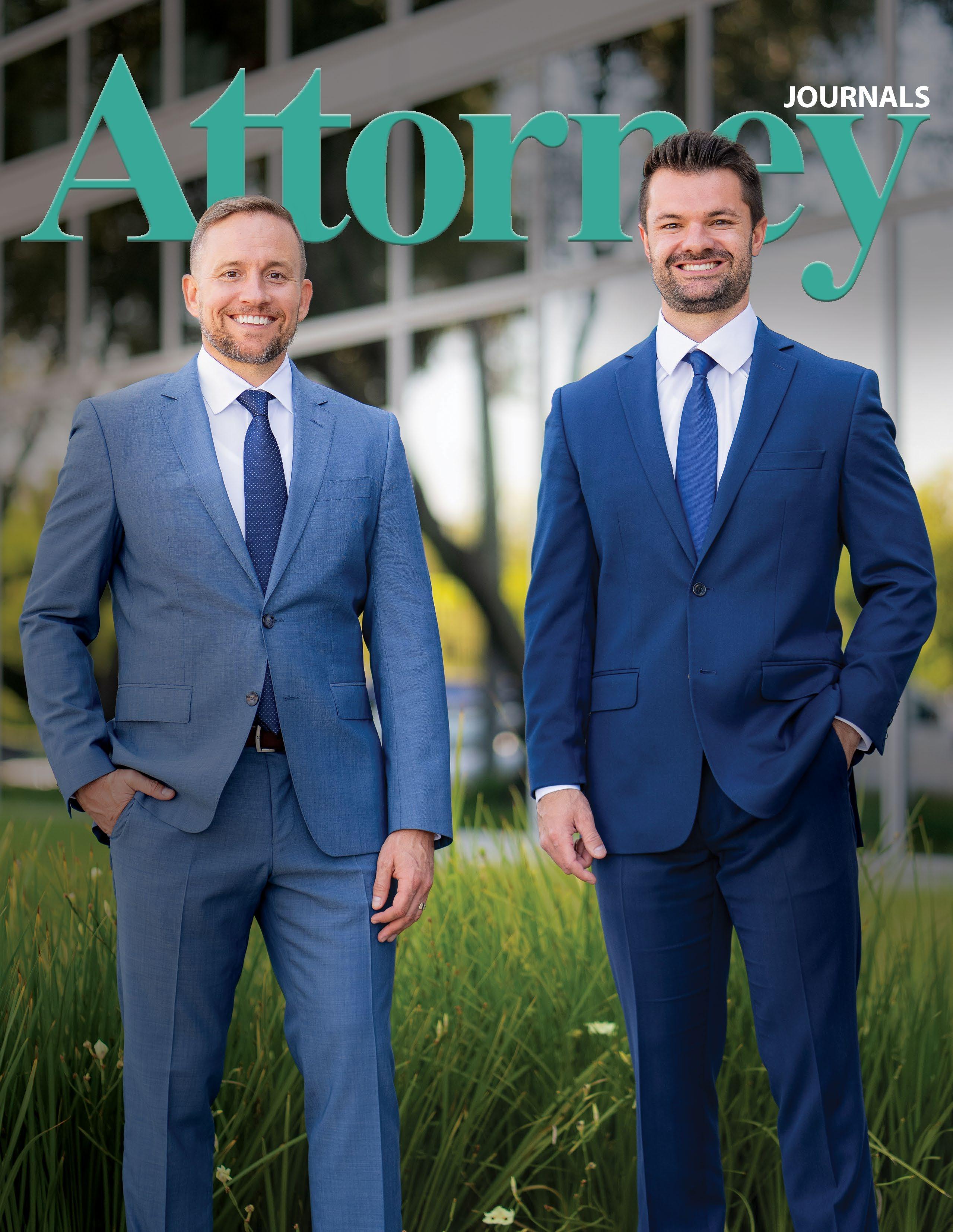
Fielding Law, APC Irvine From Vision to Reality Law Firm of the Month
6 Steps to Improve Your Communication Skills
Kimberly Alford Rice
Leveraging Legal Knowledge: The Power of By-Lined Articles
Laurie Villanueva
CA Case Summaries
Monty A. McIntyre
Understanding People’s Natural Fears Tom Hopkins


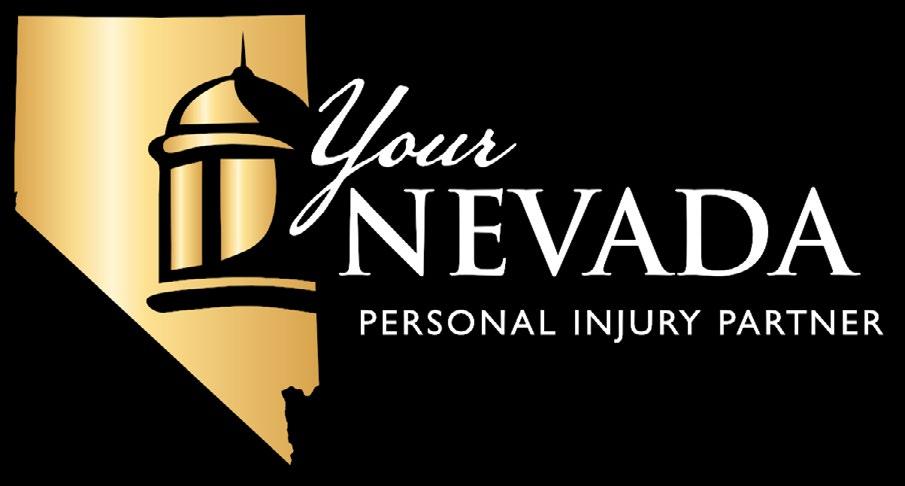















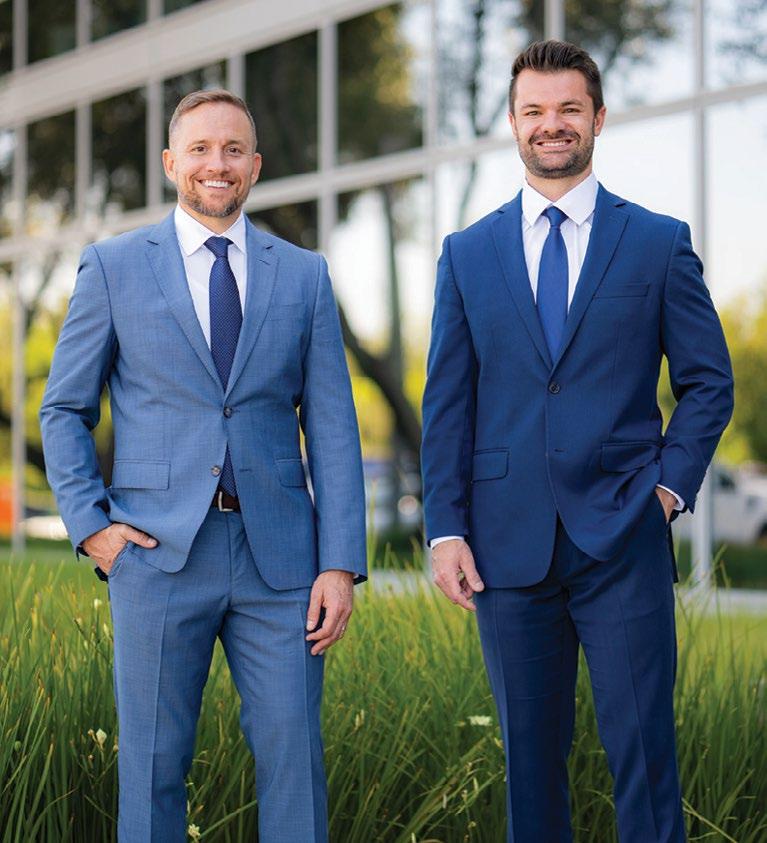


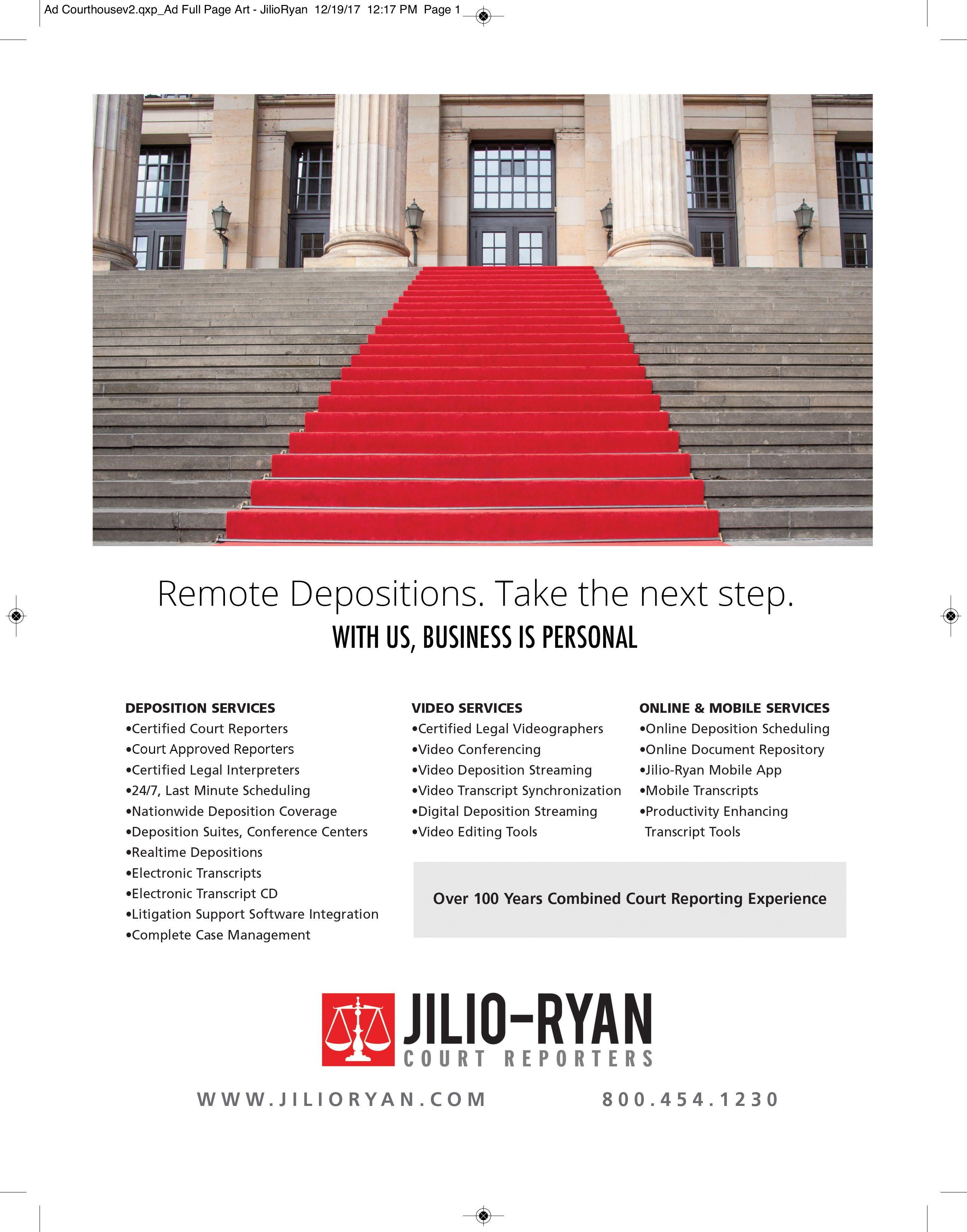

Think for a moment about what the greatest enemy is to the process of helping people decide to use your legal services. What is it that jumps in and brings presentations that were previously sailing smoothly along to a screeching halt? You may think it’s the financial aspects of your offering. Perhaps you think it’s the prospective client’s inability to make a decision. The bottom line is that they’re afraid. Fear stops more people from getting what they want in life than anything else. Fear is the greatest enemy you’ll ever encounter in your legal career.
1. Your prospective client is initially afraid of you. This is simply because they see you as a salesperson—someone who wants to charge them a fee for information they may not truly understand. Even if you are going to help someone you already know—a friend or acquaintance or even a relative—when you get down to business, certain fears will arise. It’s bound to happen in 99% of your presentations. (I’ll give you a 1% non-fear situation with your parents or grandparents, simply because in most cases they’ll believe in you and trust you no matter what role you play with them.) What do you do about the others? Accept it. There are some people who are going to be afraid of you just as there are patients who are panic-stricken when they have appointments with doctors or dentists. What you need to do to conquer this fear is to master the skill of putting people at ease. Learn to use a relaxed manner and tone of voice. Use rapport-setting comments and questions that show them you are interested in them, not just in closing the sale.
2. They have a fear of making a mistake. We all have that one, don’t we? We’ve all made decisions we’ve later regretted. Perhaps we relied on someone when we weren’t sure of his or her knowledge on the matter. When you are the one asking for the business, your prospective client must recognize you as a legal expert. You know this business.
By Tom Hopkins
You have knowledge that they haven’t even considered. To help people overcome the fear of making a mistake, you need to lay out all the details they require in an easy-to-understand manner. Once they gain confidence in your knowledge, making a decision will be easy.
3. They fear being lied to. This is where your literature, testimonial letters and referrals come in. People are more likely to believe the written word than the spoken word, so let them read the good news about your firm for themselves.
4. They’re afraid of owing money. Most people have a tremendous fear of debt. Covering the financial details very carefully is critical here. Take as much time as they need to comprehend what they’re agreeing to. Ask them questions to assure you and them that they do understand the benefits of the particular arrangement you’re recommending. Your next move would be to re-iterate everything you will do for them. Again, sell the value of the service you and your practice provide.
5. Many people are afraid of losing face. Have you ever made a poor decision that was big enough that most of your friends and family members knew about it? If you have, you know exactly what I mean. If not, believe me when I say it can be totally demeaning and embarrassing. Often a situation like that makes you feel like a child again—insecure and powerless.
For that reason, many potential clients will stall making the decision to use your services. Knowing that this could be a challenge, your primary goal should be to help them feel secure with you. Let them know they are not relinquishing total power to you. You are simply acting on their behalf, performing a legal service they need.
6. They are afraid of the unknown. A lack of understanding is a reasonable cause for delaying any transaction. If your company has national name recognition, that should help eliminate some of this fear. If you work for
a local company, I suggest you work with your fellow associates to earn a great local reputation. It will save you a lot of time over the years.
Some of the most common fears may seem irrational to you, but remember, you are an educated, professional expert. You have eliminated the unknown from being a potential fear through your own education and personal experience. You have already been involved in more transactions in your career than the average person will be in his or her entire lifetime (unless they join the ranks of sales professionals themselves). Become an educator and they will respond by becoming clients.
7. Your clients may have had a bad past experience with another firm. Have they ever made a decision like this before? If they have, what kind of experience was it for them? You need to ask the proper questions to get those answers. If they hesitate to tell you, you may assume it was a bad past experience and you’ll have to overcome a lot more fear than if they’ve never hired your type of services before.
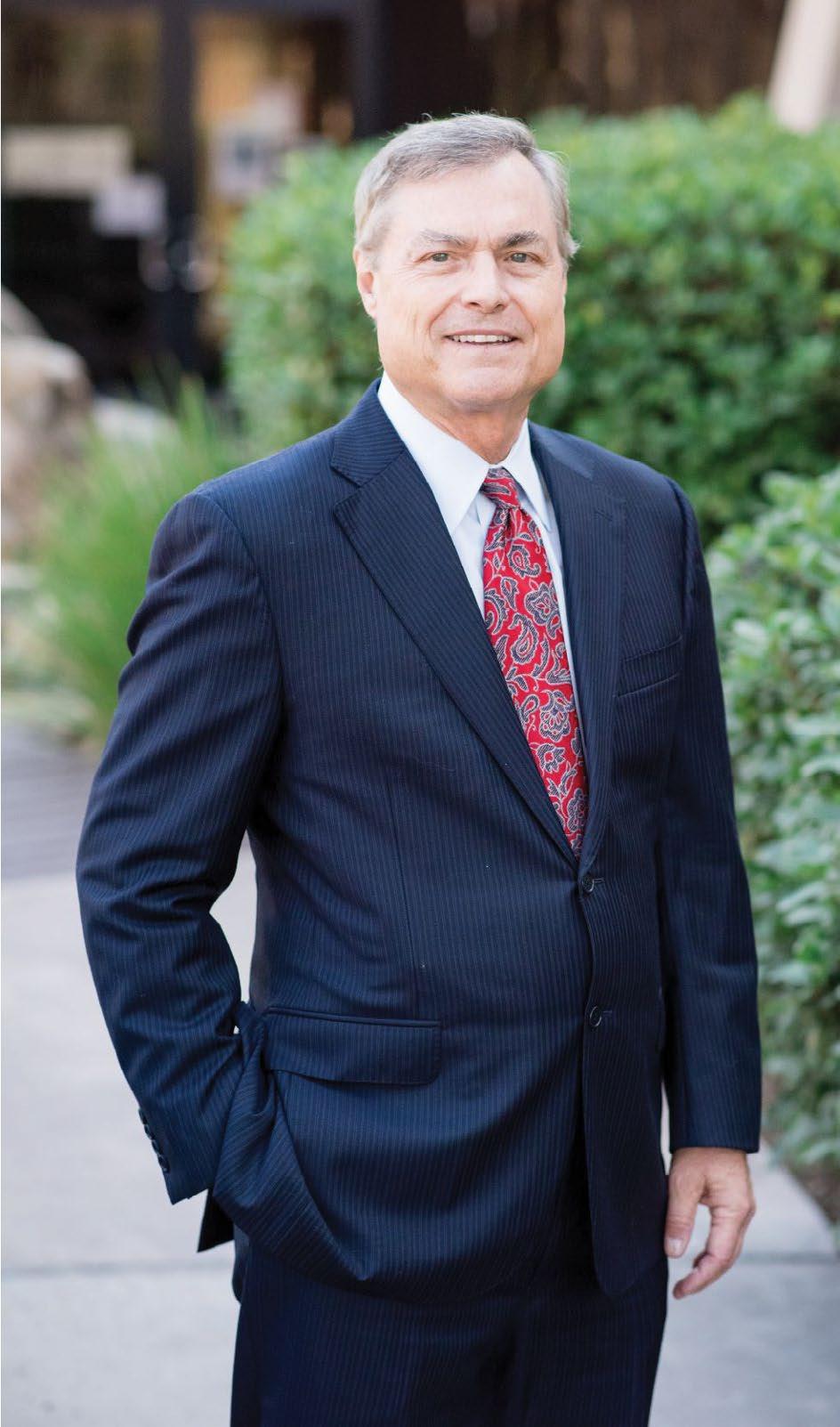
8. Their fear may be based on third-party information. Someone they admire or respect may have given them some advice that holds them back from making a decision. That third party will stand between you and them until you convince or persuade them that you can help them more than that person because you are the expert. You’ll have to work hard to earn their trust. You may even have to enlist the aid of some of your past happy clients as references.
Form the mindset of constantly asking yourself “What fear is this person demonstrating and how can I address it?” Draw from experience with other clients and be patient in helping potential new clients develop their level of trust in you. n
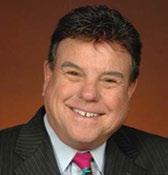
Since 1976, Tom Hopkins International has been dedicated to providing the finest sales training strategies and techniques to individuals and companies alike. Tom Hopkins is world-renowned as The Builder of Sales Champions. His selling skills and sales strategies have helped millions of sales professionals and business owners in industries from A to Z to serve more clients, make more sales and earn millions in income.
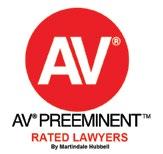




Thirty-four gigabytes. That’s how much data it’s estimated each American consumes daily via all forms of media: TV, newspaper, internet, radio, you name it. Statistically, this volume of data comprises 100,000 words on average. These statistics illustrate how noisy our world has become, particularly in the last five to 10 years as emerging technologies place us in the middle of broad communication networks that span the globe.
Recognizing that our world is indeed a very noisy place with essentially infinite data and media messages bombarding us at all times requires that we are highly sensitized to our communication styles if we ever want to be heard and perceived as effective communicators, persuaders and people others seek out.
Below are six concrete steps lawyers can take to step up their game to communicate effectively. After all, with more than half of a lawyer’s job relying upon the spoken word, perfecting your communication style is a wise investment in your future.
1. Think before you speak. No, really. Human beings have a tremendous capacity to listen, absorb and respond to messages at a relatively high rate. Because of this, it is very tempting to get caught up in the fast-paced process (depending on what part of the country you live), and instead of actively listening and absorbing your audiences’ messages, you volley back and forth in the interaction, sometimes faster than your mind can compute.
To become a more effective communicator, you must demonstrate a disciplined approach in your oral communications. Before you pop off a quick response, stop yourself to consider the impact of your words, verifying whether or not it is in your or their best interest to respond so quickly. Pouncing too quickly to respond can short circuit the communications process and/or cause you to
by Kimberly Alford Rice
suffer the consequences of an ill-timed response. I recommend adopting a 20-second rule. Before you respond, take 20 seconds (at minimum) to consider the implications of your words. Remember, what goes around comes around. You have a choice; make the right one.
2. Consider your audience. Just as important as it is to be mindful of your words, so too should you be mindful of your audience. The same message is not appropriate for every audience. What do I mean by that? As a practicing lawyer, what you say to a referral source about your practice would be different than what you would say to a client or client contact about your practice. Because we create impressions—and yes, visual images in the minds of our listeners—you must be purposeful and careful of how you relate to your audience with your words. Practice is required to perfect this skill.
3. Listen first and second, then speak. We have all heard that we have two ears and one mouth for a reason. Simply put, we do not learn when we are speaking. It is imperative that as professional services providers you actively listen to clients, colleagues, referral sources, networking partners, and so on, to learn how you might support and help them (e.g., business opportunities). Impossible as it is to spew out all the ways we are qualified to “help” others, it is just poor form to do so before understanding what the needs are. Listen up, and you’ll be surprised at what you might learn and the opportunities that present themselves.
4. Mind the communications gap. Too many miscommunications occur when we “think” we told someone (message sent) but find later either we did not or the listener did not remember it (message received) the way we intended. It matters not where the miscommunication occurred, but rather how to avoid miscommunications. First, refer to tip #1 above: Think before you speak to ensure that you are in control of your message. Second, to become a more effective speaker, it is advised to con-
firm with your audience that the message received is the message you intended to send.
How do you do this? Ask for feedback, e.g., “Are you with me?” and “Does this make sense?” Adapt these feedback questions to your natural communications style, and you will likely see eyes light up when you speak.
5. Accentuate the positive; look inside first. When we choose to lead with the negative we often are talking only to ourselves. Nobody wants to listen to negativity, especially when there is so much that is negative coming at us in the media. To become a more effective communicator, check that you are not guilty of spreading negativity to others in your conversations, presentations and in networking situations. The positive approach can be learned via disciplined practice and/or having a pal send you a signal if you go off the “positive” reservation.
6. Make every word count. KISS—keep it short and simple. Do not belabor a point. Do not offend your audience by offering too many examples when they understand your point in one. Treat words as the golden charms that they are. There is no glory in pontificating
your message to feed an ego or to merely fill space. We simply have too many words in our day to waste the excess unnecessarily.
Becoming a more effective communicator requires a concerted effort on your behalf that entails practice and a willingness to adapt to new ways of thinking. Few things have more of an impact than to present your well-crafted message and to be understood through the spoken word across all platforms. Making a presentation to an audience of clients and trade contacts and moving people to action based on your words, that is success. n
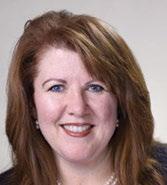
Kimberly Alford Rice is Principal of KLA Marketing Associates, a business development advisory firm focusing on legal services. As a law marketing authority, Kimberly helps law firms and lawyers develop practical business development and marketing strategies which lead directly to new clients and increased revenue. Additionally, Kimberly founded Women in the Law Rainmaker Forum to provide women lawyers guidance in professional and career management issues. She may be reached at 609.458.0415 or via email at kimberly@klamarketing.net.
www.klamarketing.net


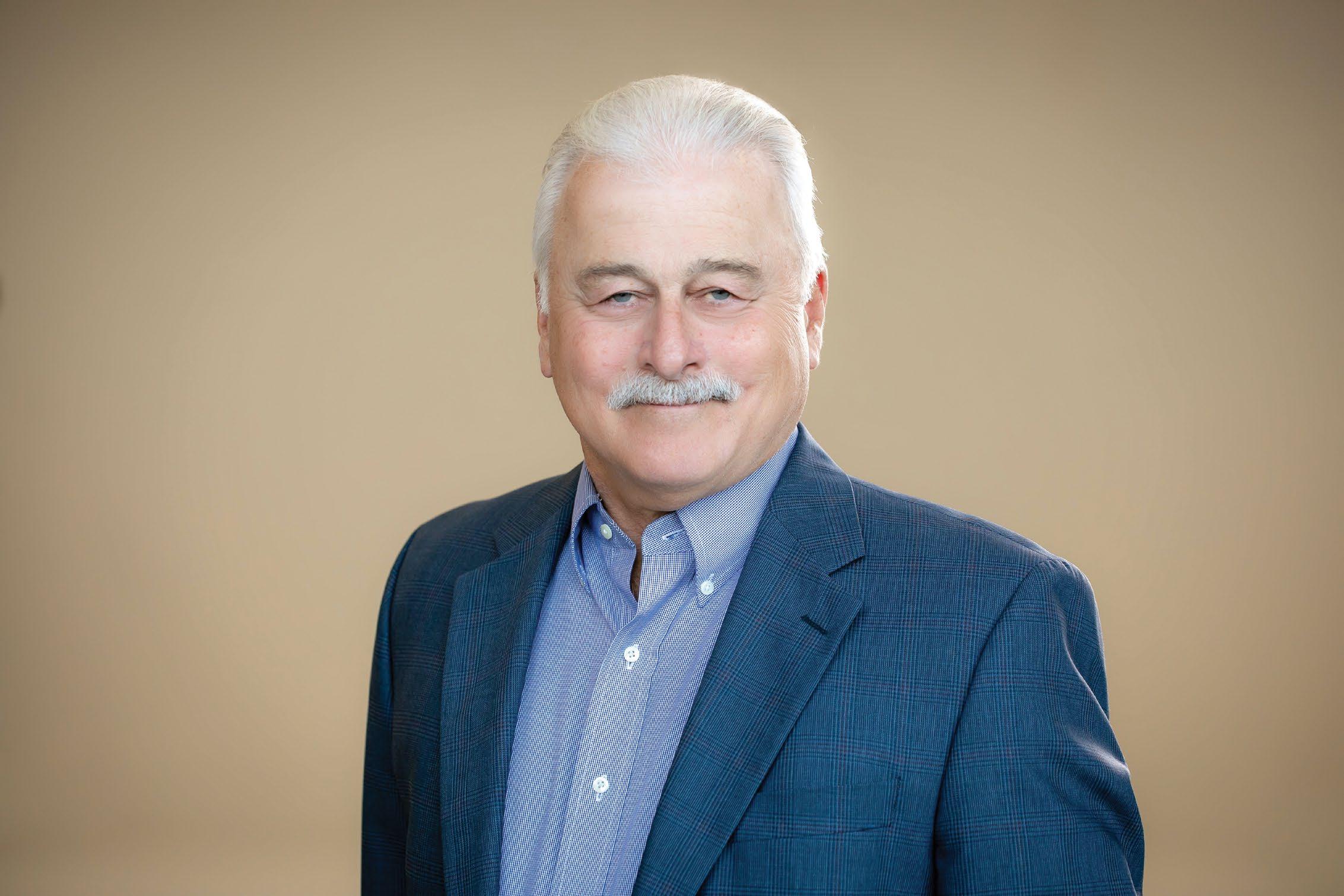
Monty A. McIntyre, Esq. Mediator, Arbitrator & Referee ADR Services, Inc.
To schedule, contact Haward Cho: (213) 683-1600 and (619) 233-1323 or haward@adrservices.com

Short summaries (one-paragraph), organized by legal topic, of every new published CA civil case, helping CA attorneys save time, win more, and make more money. Monthly, quarterly, annual, and annual practice area publications are available. Subscribe at www.cacasesummaries.com
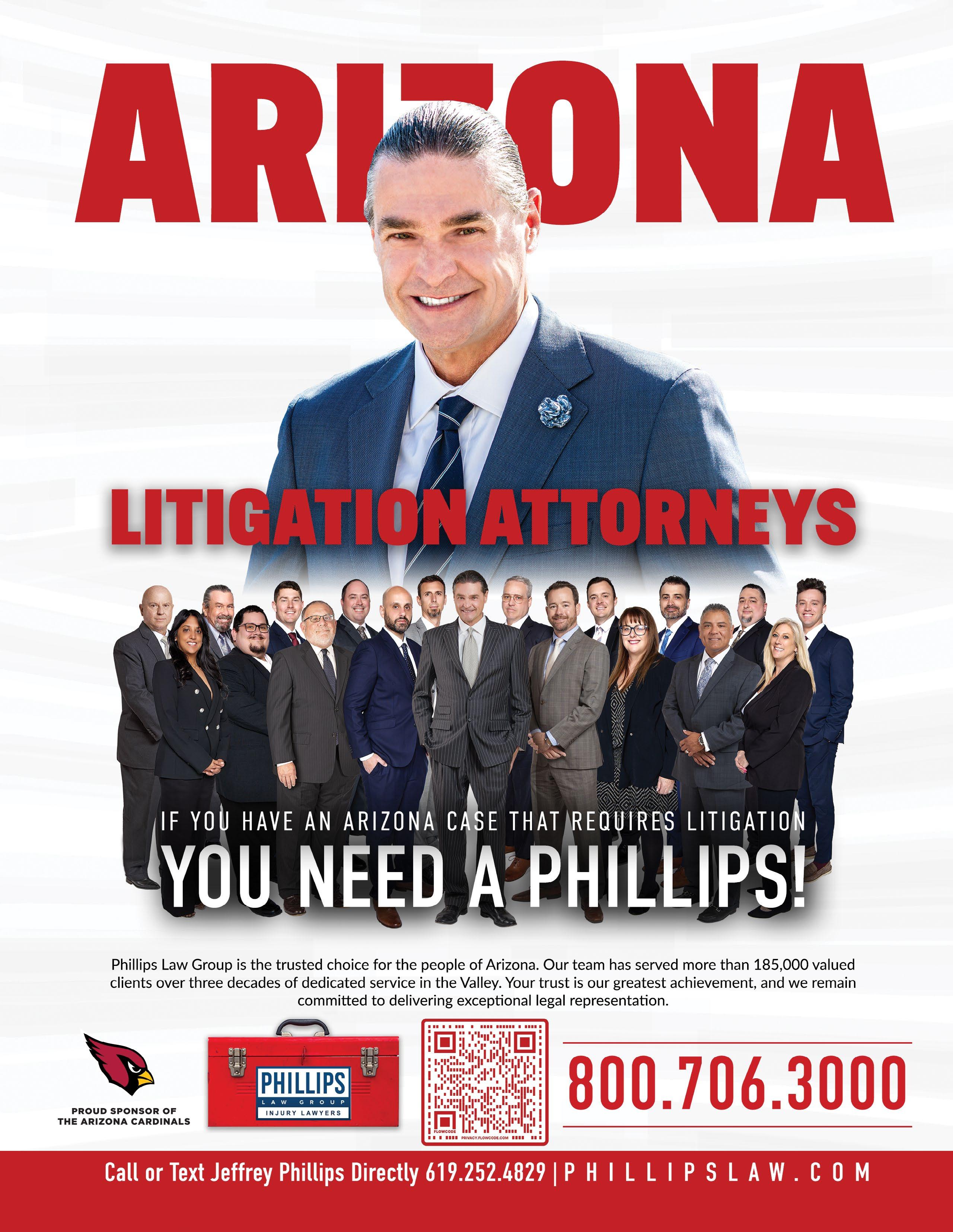

The managing partner of one of our clients recently said to me, “The hardest thing in the world for most lawyers is to decline an opportunity for increased business, even when it’s because of a conflict or a question of ethics.”
There’s obviously no question about having to say “no” in those situations. But there are other opportunities for increased business when the wise decision for the firm or the individual lawyer would be to say “no.” Here are a few examples.
A 40-lawyer litigation boutique was approached by a widely recognized and highly successful partner at a BigLaw firm about joining the firm as a lateral entry partner. He had a blue chip client list and a large book of business. He planned to bring his entire group with him, including two younger partners and two associates. He demanded a guaranteed compensation package that would have made him almost the highest paid partner in the firm. He also demanded that, not only his two partners but also the two associates, be brought in as equity partners.
The firm very much wanted this lawyer, his clients and the revenues that would probably ensue. But, after reviewing the situation with us, the partners decided that, if they met all his demands, it would disrupt the firm. They said “No.” Six months later our client did bring in a lateral entry partner who also had a blue chip client list and a substantial book of business but did not require his compensation be guaranteed or that the two associates he brought with him be admitted as partners. The firm has continued to grow and also has further strengthened its already strong culture. By the way, the other lawyer and the rest of his group have remained with his firm.
by Robert Denney
One of the top three clients of a 200-lawyer firm demanded a number of additional “value added” services as part of a different fee arrangement or they would take all of that work to another firm. The arrangement they demanded would make this client unprofitable for the firm to serve. Despite the considerable revenue involved, our client said “No.” It did, however, offer to provide other additional services at no charge and also proposed a different AFA which would still be profitable for the firm. After some discussion and negotiation, the client agreed to the firm’s proposal. Shortly thereafter, in a surprising development, the client then announced it was terminating another firm and was giving that work to this firm—work, by the way, which was also profitable.
In today’s highly competitive legal market, some firms accept work from current or potential clients even though they have limited experience or capability in an area. This is an unwise attempt to be “all things to all people,” or at least to all clients, instead of differentiating themselves by being recognized for their expertise in certain areas of practice or selected industries. What most firms should do is make the strategic decision to focus on and develop certain practice areas, types of clients or industries. Concurrent with this is to decide there are certain services they will not attempt to provide or certain clients they will not accept and, as a result of this strategic decision, decline opportunities for increased business in these instances.
This does not mean firms should say to their clients at times, “We don’t want your additional work.” What they should say is, “We’re not the best choice for this work. Let
us refer you to a firm that has the expertise you need in this area.” By handling the situation this way, the firm strengthens its relationship with its clients because it demonstrates that it places their interests ahead of its own desire for additional business.
Despite the soundness of this decision, there will still be partners or managers in the firm who disagree. Some will say, “That’s all well and good but it’s just bringing another firm into the picture and running the risk of our eventually losing the client.” That misses the point. The realities are:
1. You can’t prevent a client from using other law firms or professional advisors and...
2. You keep clients loyal to you by serving them superbly and earning their trust.
Others in the firm will say, “That’s fine for established firms who have so much business they can afford to say

‘No.’ We can’t.” The reality in this case is that, if you decide you can’t afford to decline business until you’re established and overwhelmed with work, you’ll never be established and differentiated from your competition.
This principle doesn’t just apply to law firms. It applies to every business and professional firm— including consulting firms such as ours. Yes, we practice what we preach! It’s not easy and it requires courage. But successful operations have learned that sometimes you have to say “No.” n
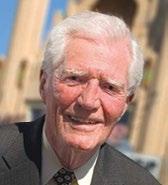
Bob Denney is President of Robert Denney Associates, Inc. He and the firm provide management, marketing and strategic planning counsel to law firms and privately held companies throughout the United States and parts of Canada. He has authored or co-authored seven books and has written many articles on these subjects. For information about Bob, the firm and their services, visit their website www.robertdenney.com.




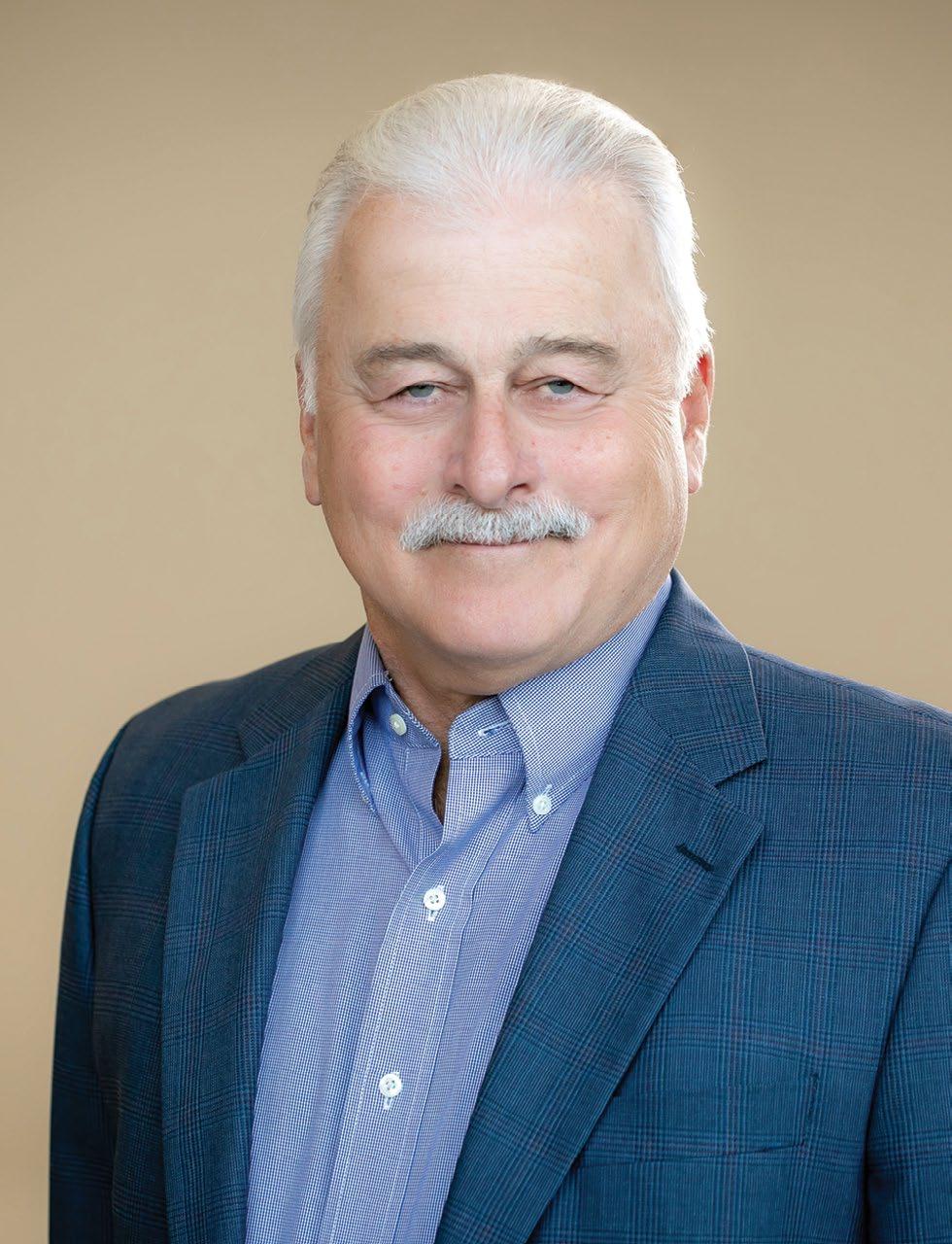
by Monty A. McIntyre, Esq.
These recent cases summarized by Monty A. McIntyre are from his publication California Case Summaries™. Monty prepares short summaries (one paragraph), organized by legal topic, of every new published California civil and family law case that California lawyers can subscribe to on either a monthly, quarterly or annual basis. Monty also offers specialized practice area annual summaries in the areas of Employment, Family Law, Real Property and Torts. For more information go to https://cacasesummaries.com. A California civil trial lawyer since 1980, a member of ABOTA since 1995, a past president of the SDCBA and San Diego ABOTA, and also an expert Zoom user, Monty serves as a mediator, arbitrator and referee with ADR Services, Inc. handling cases throughout California in the areas of business, elder abuse, employment/wage & hour, insurance bad faith, legal malpractice, medical malpractice, personal injury, real property and wrongful death. Web: https:// www.adrservices.com/neutrals/mcintyre-monty/. To schedule a matter, contact Monty’s case manager Haward Cho, (619) 233-1323 or haward@adrservices.com.
Quach v. Cal. Commerce Club, Inc. (2024) _ Cal.5th _ , 2024 WL 3530266: The California Supreme Court reversed the Court of Appeal decision which had reversed the trial court’s decision denying defendant’s motion to compel arbitration of plaintiff’s complaint alleging wrongful termination, age discrimination, retaliation, and harassment. The trial court denied the motion to compel arbitration concluding that plaintiff had shown he would suffer prejudice if arbitration was compelled. The Court of Appeal disagreed with the trial court, finding that defendant did not waive its right to compel arbitration and concluding the trial court’s finding that plaintiff had shown prejudice was not supported by substantial evidence. Two weeks after the Court of Appeal’s decision, the United States Supreme Court issued Morgan v. Sundance, Inc. (2022) 596 U.S. 411 (Morgan), holding that federal law does not require a showing of prejudice to establish waiver of the right to arbitrate. (Id. at pp. 413–414.) Because the California law requiring a showing of prejudice had been based upon earlier federal case law that was reversed by Morgan, the California Supreme Court abrogated the prejudice rule in light of Morgan and reversed the Court of Appeal’s decision. (July 25, 2024.)
Downey v. City of Riverside (2024) _ Cal.5th _ , 2024 WL 3491142: The California Supreme Court reversed the Court
of Appeal’s order affirming the trial court’s orders sustaining defendants’ demurrer, without leave to amend, to plaintiff’s complaint alleging negligence under Dillon v. Legg (1968) 68 Cal.2d 728 (Dillon). Plaintiff, the mother of daughter Jayde Downey, was giving driving directions to her daughter over a cell phone and heard the event when her daughter was severely injured in a car crash. The trial court, and later the Court of Appeal, concluded that plaintiff could not recover emotional distress damages against the defendants unless at the time of the crash she was aware of a causal connection between her daughter’s injuries and the defendants’ alleged negligence in maintaining the intersection. The California Supreme Court disagreed, concluding that under Dillon it is the awareness of an event that is injuring the victim — not awareness of the defendant’s role in causing the injury — that matters. Neither precedent nor considerations of tort policy supported requiring plaintiffs asserting bystander emotional distress claims to show contemporaneous perception of the causal link between the defendant’s conduct and the victim’s injuries. (July 22, 2024.)
Dickson v. Mann (2024) _ Cal.App.5th _ , 2024 WL 3421751: The Court of Appeal affirmed the trial court’s order denying the third party claim of law firm Higgs, Fletcher & Mack LLP (HFM) where it claimed ownership of $585,000 in funds it received from HFM client and defendant Jack Mann pursuant to a flat fee agreement for future legal representation that HFM
entered into with defendant, and its denial of HFM’s motion for reconsideration. After defendant stipulated to the entry of a $12 million judgment in favor of plaintiff, judgment was entered on August 8, 2022. On August 22, 2022, plaintiff served HFM with a notice of levy for any money it was holding in trust for defendant, and HFM later filed its third party claim. The trial court properly rejected plaintiff’s claim that the funds were still defendant’s as long as they remained in the client trust account. The trial court properly denied the third party claim because HFM presented no evidence that it had earned the flat fee. HFM argued that the flat fee was earned once it was deposited. However, Rule 1.5(d) of the California Rules of Professional Conduct clearly provides that a flat fee is not earned until services are provided. The trial court also properly denied the motion for reconsideration. (C.A. 4th, July 18, 2024.)
Medina v. St. George Auto Sales, Inc. (2024) _ Cal.App.5th _ , 2024 WL 3548620: The Court of Appeal affirmed the trial court’s order overruling defendants’ demurrer to plaintiff’s complaint, and its later denial of a motion for summary judgment and a motion for nonsuit. Plaintiff purchased a used car and sued defendants asserting a claim under the Consumer Legal Remedies Act (the CLRA; Civ. Code, § 1750 et seq.) for misrepresenting that the car’s engine was properly functioning and concealing extensive repairs to the car’s engine to induce plaintiff into purchasing the car. Plaintiff and defendants settled the case and agreed to a stipulated judgment after the jury concluded that plaintiff had timely brought his action within three years after discovering defendant’s conduct. The settlement allowed defendants to appeal the issue of whether plaintiff’s complaint was untimely because it was not filed within the three-year statute of limitations under the CLRA. (See § 1783.) Defendants argued that the discovery rule does not apply the CLRA’s statute of limitations. Finding no case law on this point, the Court of Appeal concluded that the discovery rule applies to the CLRA’s statute of limitations. All of defendants’ other arguments were rejected. (C.A. 4th, July 26, 2024.)
Saurman v. Peter’s Landing Property Owner, LLC (2024) _ Cal.App.5th _ , 2024 WL 3548509: The Court of Appeal reversed the trial court’s orders granting defendant’s motion for summary judgment, and granting defendant’s motion for sanctions against plaintiffs’ attorney. Plaintiff husband, the successor in interest of his disabled wife who was allegedly killed by an unlawful access barrier in a restaurant, brought action against the current restaurant owner and the entity that previously owned the restaurant when plaintiff’s wife died, alleging violations under Americans with Disabilities Act’s
(ADA) public accommodation provision, and violations of state’s disability access laws (the Unruh Act and the Disabled Persons Act (DPA). The trial court granted defendant’s motion for summary judgment as to the ADA cause of action, concluding that plaintiff husband lacked standing to bring a lawsuit for injunctive relief. It granted defendant’s summary judgment motion as to the state causes of action (Unruh Act and DPA) because plaintiff submitted no evidence to show any act, omission, or error by defendant current owner in relation to the action. Finally, the trial court granted the motion for sanctions, ordering plaintiff’s attorney to pay defendant $100,000 for pursuing what the trial court found to be frivolous claims. The Court of Appeal disagreed on each issue. It concluded that plaintiff husband had standing to commence an ADA claim on his deceased wife’s behalf in the superior court. It concluded that the Unruh Act and the DPA allowed plaintiff husband to seek injunctive relief from the current owner defendant. Finally, the Court of appeal concluded that the ADA, Unruh Act, and DPA claims that were supported by facts developed at the summary judgment stage were arguably legally meritorious and the trial court erred by imposing the attorney sanctions award. (C.A. 4th, July 26, 2025.)
Camden Systems v. 409 North Camden (2024) _ Cal.App.5th _ , 2024 WL 3506697: The Court of Appeal affirmed the trial court’s order granting defendant’s motion for summary judgment in plaintiff’s action seeking declarations that certain actions taken by members of defendant, including distributions to the members, were invalid and seeking return of the distributed funds. The trial court properly concluded that while some of the actions taken by its members at the company’s February 2021 annual meeting were invalid in light of defective notice of the meeting, at the February 2022 annual meeting a majority of the members ratified the prior actions, thereby curing any defect in the 2021 notice. The Court of Appeal affirmed, observing that the California Revised Uniform Limited Liability Company Act (the Act; Corp. Code, § 17701.01 et seq.), which governs the management and operation of limited liability companies, provides that a limited liability company generally “shall have all the powers of a natural person in carrying out its business activities.” (§ 17701.05.) Because a natural person has the power to ratify acts taken on the person’s behalf, limited liability companies likewise may, through their members, ratify actions previously taken on behalf of the company. In addition, the trial court also properly upheld the resolution adopted by the majority of defendant’s members to indemnify its members and advance defense costs and expenses incurred in the lawsuit filed by plaintiff. (C.A. 2nd, July 23, 2024.) n

by Dan Baldwin
During the past five years since Fielding Law, APC opened for business in California and Arizona, the boutique personal injury firm has seen remarkable growth and transformation—additional attorneys, experienced staff members, remarkable case results, and new office locations. Regardless of all the change and growth, one constant remains: sitting atop the founder’s desk placed between a computer, case files, and several legal pads, a small placard reads, “If you build it, they will come.” This phrase has served as a foundational principle for Clark H. Fielding, Founding Principal of Fielding Law, APC. “To borrow the iconic line from a famous movie, I knew from the beginning that if we built the right organization based on the right principles, the clients and the talented attorneys and support staff would come. What I didn’t realize at the time was that we would reach our current level of sophistication, experience, and creativity in so few years. And, really, we’re just beginning to grow,” says Fielding.
Fielding Law has made significant progress establishing itself as a leading boutique personal injury firm during the remarkably short period of time between the “then and now.” “Significant growth has been accomplished in physical plant improvements and internal management changes, and in continuing and successful efforts to build a superior team of legal professionals,” he says.
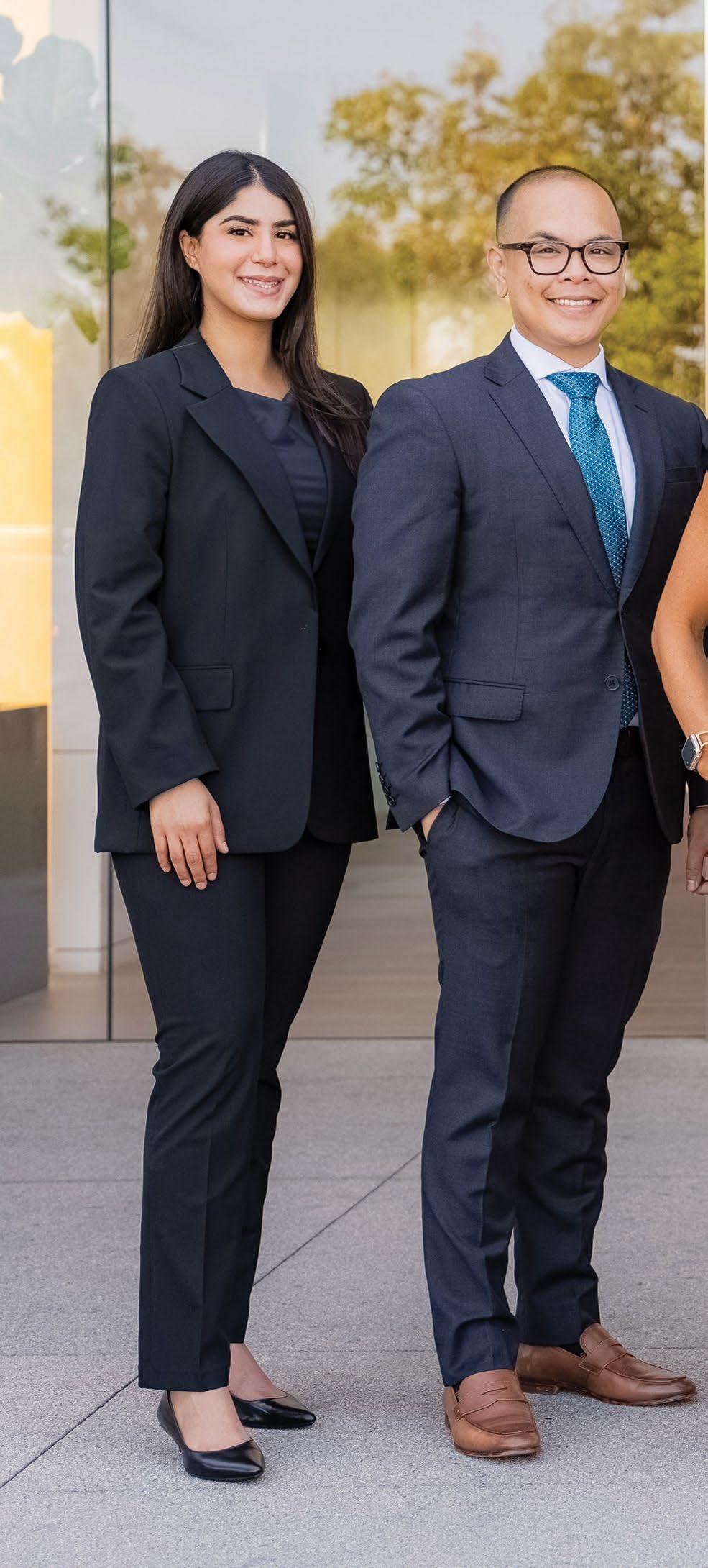
The Fielding Law leadership team is dedicated to guiding their mission and shaping the future with professionalism, civility, and kindness.

The law firm has made strategic office relocations in both California and Arizona. Relocating the Arizona office from Tempe to downtown Phoenix and the Irvine office to 505 Technology Drive reflects the firm’s commitment to growth and innovation. These changes not only boost the firm’s presence in the community, but also enhance its ability to serve clients and engage with local legal systems more effectively.
While the recent office moves are the most visible changes, the law firm continues to improve its day-to-day internal operations to stay on the cutting edge of the legal industry and better align with its Mission Statement: “To improve the lives of each and every client through ethical and efficient legal representation.” Some of the many recent improvements include switching to a new and more efficient case file management software; installing a new and improved Voice-
Over Internet Protocol (VOIP) phone system to enhance callers’ experiences; a realignment of individual firm members into designated, specialized teams; and firm-wide use of ethical artificial intelligence with attorney oversight.
Fielding Law continues its determined effort to educate the public about their legal options and rights through online marketing, social media, and radio. The firm has curated a library of blog posts: https://fieldinglawfirm.com/blog/ and legal glossary terms on its website: https://fieldinglawfirm. com/legal-terms-glossary/. They also have a Frequently Asked Questions video page, which provides easy-to-access and digestible information available to the public. They continually create and publish blog posts and articles and add to their online libraries.
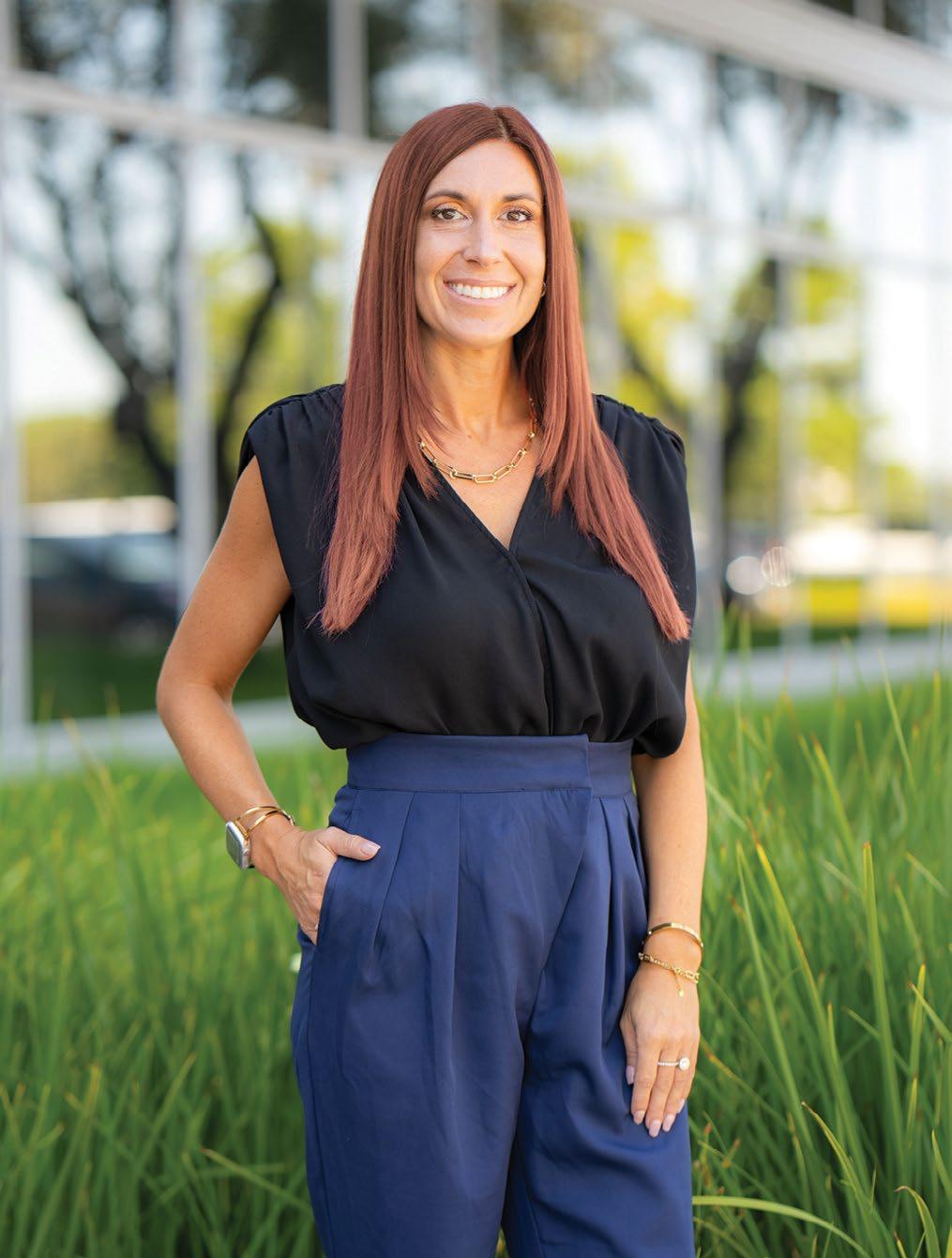
An unanticipated benefit of Fielding’s approach was the immediate and long-term growth of the firm’s referral business. The firm’s second highest source of leads is from other attorneys, including defense attorneys and distinguished law school professors. These grass roots referrals serve as constant reassurance that Fielding Law’s focus on ethical and efficient representation of all clients is a modus operandi that is universally appreciated and valued by others in the legal community. “We enjoy ethically paying out attorney referral fees. That was not something I designed, so I think that alone speaks to our level of expertise and achievement,” Fielding says.
The firm enjoys staying involved in the local community. They give back to the community by investing in student athletics through local sponsorships with UC Irvine Baseball and San Clemente High School Girls Wrestling and Girls Flag Football.
“Clark is the best attorney out there! He is very reliable and super, and I mean SUPER detail-oriented. There’s nothing better than an attorney who really cares about your case and listens to you. I couldn’t recommend Clark and his team more!” —Joanna
Fielding’s “then” efforts to build a sophisticated legal team are still very much an active and aggressive part of his “now.”
“One major challenge law firms face today is the public’s expectation of instant results, driven in large part by the incredible ease of rapid online orders. In law, there is a system we have to follow. It takes time to do things right, and we never cut corners. That’s how we compete—with excellence. And it’s working,” Fielding says.
His team has grown to approximately 25 members. “Four of us are experienced, mature, battle-tested attorneys with years under our belts, but more importantly we all have grown in quality, caliber, experience, skillset, and diversity. With more experience, failure and triumphs, we are developing more confidence in our work. With time, and team bonding events and activities, we are developing a stronger trust and synergy within our team.”
Director of Operations and Case Management Supervisor Savonnah Saumers is “employee number one. She is a team player, detail-oriented, and someone who enjoys thinking outside the box. She is the ‘glue’ holding our firm together,” Fielding says.
Ryan W. Cooper is the Senior Attorney at Fielding Law. He focuses his practice entirely on personal injury matters, with a particular focus on the firm’s most catastrophic and complex cases. He has experience handling every type of personal injury case, including car accidents, trip/slip and falls, dog bites, shootings, negligent security cases, and wrongful death cases. Cooper prides himself on relationships—with his clients as well as defense lawyers on the other side of his cases. Since being admitted to the California bar, he has personally recovered over $30,000,000 for his clients. He played college baseball at UC Irvine and still enjoys an active lifestyle by competing in triathlons and golfing as often as possible. He and his wife, Jayme, recently welcomed a healthy baby boy to their growing family.
Other key members of Fielding’s team include Andrew Lark, Chief Financial Officer; Jared Esmiller, Lead Consultation Specialist; Hannah Drinnon, Case Manager; Haley Wyatt, Case Manager; Moranda Fielding, Creative Director; Tina Westveer, Director of Art and Brand Development; Naba Memon, who handles Human Resources.
Kris L. Amundsen, Associate Attorney, dedicated two years in full-time volunteer service helping others overcome

addictions, personal struggles, and helplessness. He has advocated for hundreds of clients who have suffered from the trauma of personal injury. His fluency in Spanish is an asset in expanding the firm’s services.
One of Fielding’s mentees, Brian J. Yee, recently joined the team as an Associate Attorney. He had a distinguished career in Hollywood as a business and legal affairs attorney in negotiating, structuring, and drafting agreements for television development and production. His return to personal injury practice is fueled by a commitment to providing compassionate support and tenacious representation to those in need combined with the opportunities to do just that provided by Fielding Law.
The collective talents and individual contributions of the entire Fielding Law team are unique and unmatched. The firm is diverse, with members fluent in Spanish, Portuguese, Tagalog, and Hindi/Urdu.
Fielding Law, APC is by design an incubator and launch pad for college students and college graduates aspiring to enter law school. Many college students, recent college graduates, and people without relevant office and law firm experience face complex challenges when joining a law firm. Fielding Law addresses this challenge through its Client Success Department.
“It’s like a ‘bullpen’ where our young team members learn the intricacies of personal injury law and eventually earn the opportunity to promote into roles requiring heightened experience and specific skills sets. It’s one way we manage to stay ahead of the curve,” Fielding says.
One of Fielding’s approaches that helps to foster a more efficient and effective organization is his encouragement for everyone to bring their ideas to the table. Fielding says that while not every idea is adopted, many members of the team

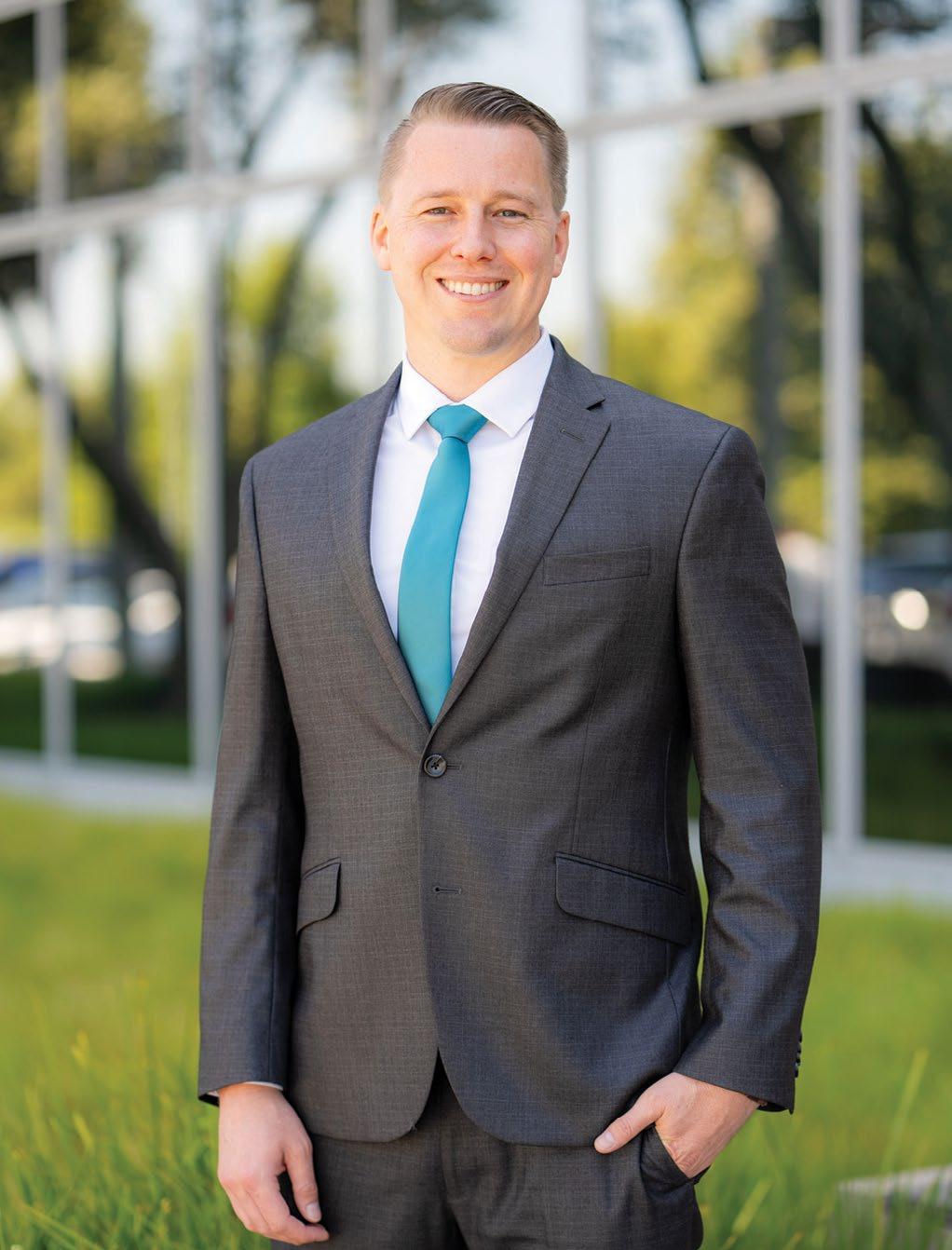
have created forms, templates, practices, and processes that have been adopted and have proven valuable throughout the years. He conducts weekly meetings to review cases, provide oversight, direction, assistance, foster collaboration, and gain insights from diverse perspectives of a diverse team.
“I am beyond grateful not only for the professionalism and invaluable experience you brought to my case, but also for your thoughtfulness, compassion, and kindness to my concerns and fears during my situation. The outcome of the case was beyond my expectations. Thank you again!” —Diana
A case proving the value of Fielding’s approach to the law and the management of a law firm is Lahra Welch v. City of Los Angeles. Fielding Law’s client, Lahra Welch, was rollerblading on a residential street in Los Angeles when she tripped and fell on a patch of raised asphalt in the middle of the road. Welch suffered a broken wrist and subsequently sued the City of Los Angeles for having a dangerous condition on public property. The case was tried in the Santa Monica Courthouse, and it has since received considerable notoriety. In fact, Megan Jenkins, who recently joined the Client Success Department, originally learned about the firm because she studied the Welch trial in her undergraduate class at the University of San Diego.
For obvious reasons, the case was a challenging one and it had been turned down by other firms before being referred to Fielding. “I saw some legal viability to it. And I’m glad that all those years ago I took the risk to help Lahra. She’s a wonderful person and very deserving of what she got from that jury verdict,” Fielding says.
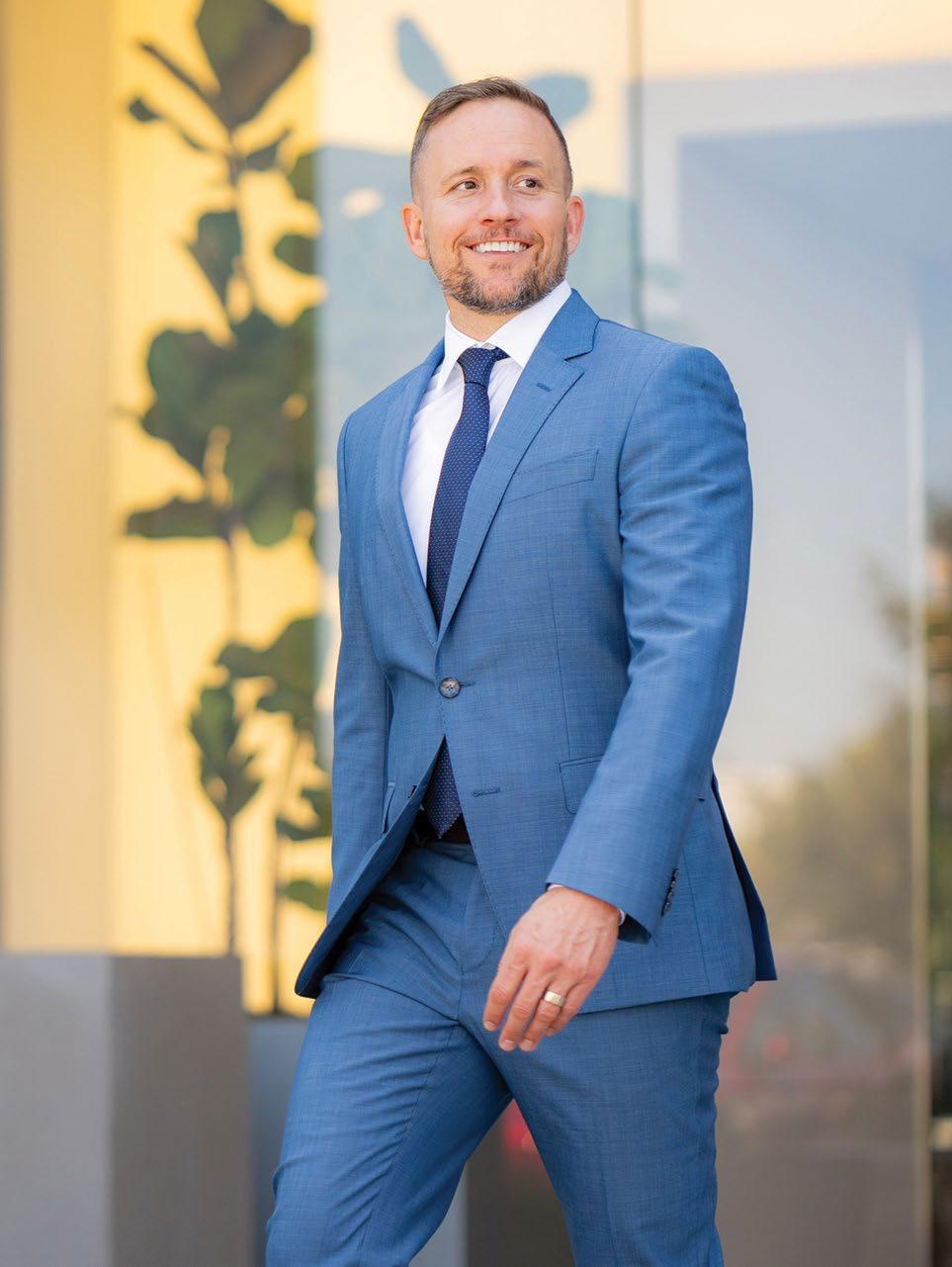
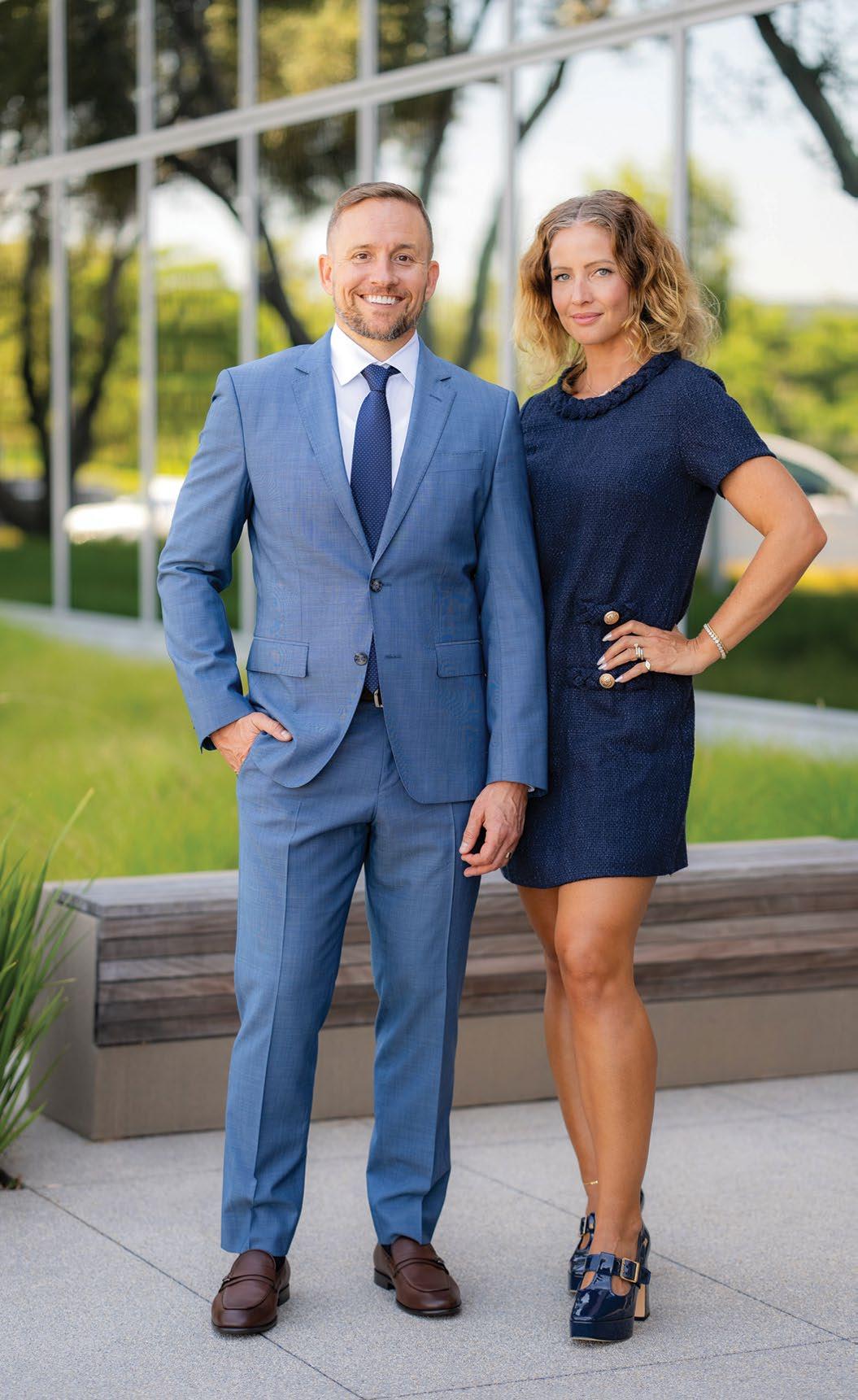
Welch contended that the piece of raised asphalt in the street constituted a dangerous condition on public property; that she was unable to see the raised asphalt because there were no warnings posted, and trees cast shadows in the road; that the City had actual and constructive knowledge of the dangerous condition; that the asphalt had caused her to fall, which led to her breaking her wrist. The result was a permanent disability in her left hand.
The City contended that the raised asphalt was not a dangerous condition, that it had no knowledge of the raised asphalt, and that Welch was entirely at fault for her fall.
Fielding and Cooper handled the case for the firm, along with co-counsel Maximilian Lee. After a trial, the jury returned a verdict in favor of Welch for $2 million that was reduced to $1.66 million based upon a finding that Welch was 17% negligent.
Fielding says, “I saw the possibility there for it to be a viable case. It was a big risk to take that on because we had to go the distance to a jury trial and post-trial motions. But I believed in her and wanted to help her. A lot of people here believed in her case, including our co-counsel, Max Lee.”
Fielding, Lee, and Cooper tried a premises liability case in Riverside County in March. The case involved Caroline Buchanan who suffered a right bimalleolar ankle fracture. Fielding gave a compelling opening statement, but ultimately the jury rendered a verdict in favor of the defense. Fielding says, “That loss stung, but I would do it all over again to advocate for Caroline. When we have given our all for our clients, we are proud of our wins and our losses.”
The firm’s number one rule is “Communication, Communication, Communication,” which keeps everyone informed of progress and ensures trust and efficiency.
Fielding says, “I’ve been an attorney since 2007, and doing personal injury since 2010 in California and Arizona, and I’ve successfully handled literally thousands of cases. We have hundreds of clients, yet I look back, and I still remember our very first client, our very second client, and I can name them. They’re not just numbers and names on a case file.”
Something that hasn’t changed in the past five years, but that has been enhanced over time is the firm’s commitment to remaining in touch with the people they have served. For example, they send out birthday cards to current and former clients and Fielding is personally committed to staying in touch with clients long after their case is concluded.
Fielding says that regardless of the size of the case, every client is very important. The birthday cards are just a way of letting them know that. Obviously, some cases are near and dear to the heart— where there has been a loss of life or somebody has been paralyzed, for example. For those people, Fielding sends personal texts or calls them on the phone in addition to the birthday card.
“We have helped them through a tragedy, and I want them to know we’re still there for them. We’re relationship people and it really matters to us. People aren’t just a file or a number because we really do focus on the individual person. Even after a case has been done for years, we continue to make the effort to keep a relationship there,” Fielding says.
“Fielding Law is the best personal injury law firm EVER!!! I previously worked at a personal injury firm. I know very well what good representation looks like and Clark Fielding and his team are ABSOLUTELY top notch!!!!” —Cheline

Fielding Law, then and now, continues to earn rave reviews from clients, former clients, and legal professionals. The firm also continues to earn public recognition, awards and honors for its commitment, excellence, and results.
These accolades include: Avvo Client’s Choice, Super Lawyers, Best Law Firms, and Best Lawyers in America.
Clark Fielding’s recent awards include: Best Lawyers in America 2023-2025, Super Lawyers – Southern California 2022-2024, Forbes Advisor – Best Car Accident Lawyers & Best Personal Injury Lawyers 2024, U.S. News & World Report Lawyer Directory, LA Times Southern California Outstanding Personal Injury Lawyers for 2022 and Southern California’s Leading Lawyers and Visionaries for 2023. He continues earning Avvo Client’s Choice Awards since 2015. He was named the Justice HQ Member of the Month for November 2023 and he continues to be an active founding member of Justice HQ. Fielding spoke on two panels at the Law-Di-Gras conference in San Diego in October of 2023.
Cooper’s recent awards include: Martindale-Hubbell AV Preeminent Award 2023-2024; Best Lawyers: Ones to Watch for Personal Injury Litigation – Plaintiffs 2022-2025; Super Lawyers Southern California Rising Star 2021-2025. Cooper maintains a 10.0 Superb rating from Avvo. He was published this spring in OCTLA’s The Gavel for an article discussing a lawyer’s ethical duties with artificial intelligence in the law. This year Cooper spoke at Chapman Law School’s Admitted Students Preview Day.
Firm Awards: TopVerdict.com Top 50 Jury Verdicts in All Practice Areas – Los Angeles, Best Law Firms for Personal Injury Litigation – Plaintiffs 2024, 2025.
From then to now, Fielding has seen the unfolding of an ongoing dream. When he began thinking about his own firm,
he remembered the motion picture Field of Dreams and the famous line “If you build it, [they] will come.” He says, “That line struck a chord. If I build a law firm, clients will come, team members will come, and the relationships will come. We manifest that positive outlook in everything we do.”
Fielding is well read, especially in business matters, with an interest in biographies of entrepreneurs. He knew he and the firm he would build would encounter twists and turns, challenges big and small, failures and triumphs.
“I was getting in for a wild ride and I was ready for that stage in my life. It really has been a wild ride from then to now, but it has been financially, professionally, and personally rewarding. I am incredibly excited about our future.” n
Contact Fielding Law, APC
505 Technology Drive Suite 250 Irvine, CA 92618 (949) 288-5484
2 North Central Avenue Suite 1800 Phoenix, AZ 85004 (480) 542-5454
www.fieldinglawfirm.com Instagram @fieldinglawfirm

In the competitive landscape of the legal field, establishing oneself as a thought leader is paramount. Publishing a bylined article in a respected legal publication serves not only as a testament to a lawyer’s knowledge but also as a strategic tool for career advancement and business growth. Let’s explore how this influential piece of content can transform your professional trajectory.
Lawyers gain substantial credibility by contributing well-articulated, insightful pieces to esteemed legal publications like The American Lawyer, Law 360, or The National Law Journal. This demonstrates their deep understanding of complex legal matters and establishes their authority in the field.
A by-lined article offers the opportunity for peers to recognize and respect the unique insights of the lawyer, fostering professional relationships and collaborative opportunities within the legal community.
Potential clients are often impressed by a lawyer’s published works. Articles that resonate with readers can lead to new client inquiries, offering a direct pathway to expanding one’s client base.
• Expanded Reach: Articles published in legal journals or online platforms are accessible to a broad
by Laurie Villanueva
audience, including prospective clients, referral sources, and legal contemporaries.
• Media Attention: Journalists and media outlets often turn to published articles for authority opinion, which can result in further exposure through interviews or quotes.
Here are tips for ensuring an article’s success:
• Engaging Introduction: Draw readers in with a compelling narrative or a provocative question.
• Substantive Body: Provide thorough analysis and unique perspectives on relevant legal topics.
• Clear Conclusion: End with strong takeaways that reinforce your main points and provide practical value.
Once the ink dries and your article is out in the world, it’s time to magnify its impact.
• Social Media Sharing: Disseminate your article across LinkedIn, X.com (aka Twitter), and other professional networks to foster engagement and discussion.
• Follow-up Content: Consider writing blog posts or hosting webinars that expand on the article’s themes, keeping the conversation going and your profile in the spotlight. n
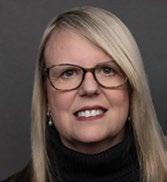
As Content Manager, Laurie Villanueva writes and edits engaging copy for social media, website landing pages, digital ads, newsletters, and more. A graduate of Penn State University, Laurie has more than 14 years of copywriting experience. Learn more at: www.good2bsocial.com.


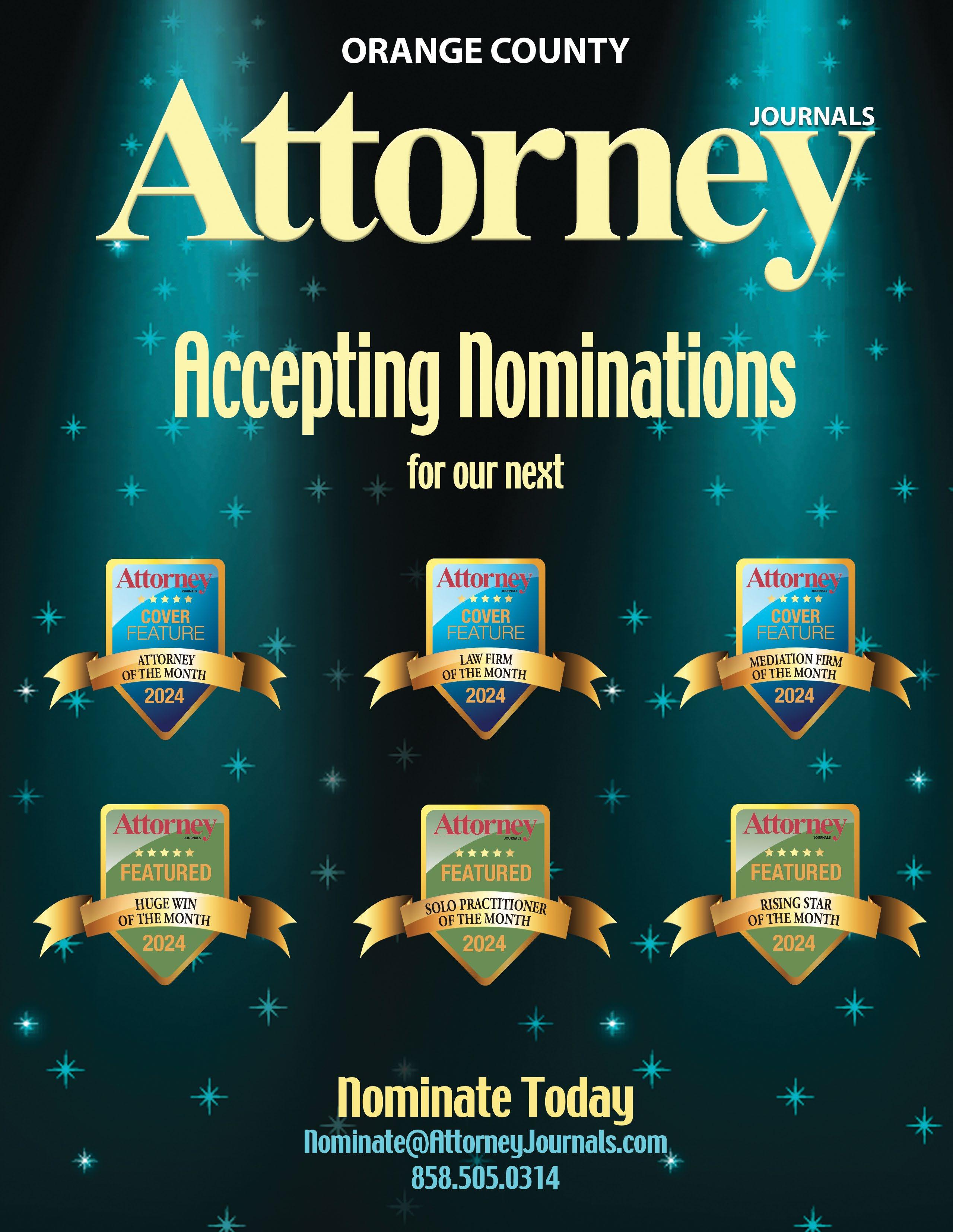
$10.5 Million Pedestrian Wrongful Death
$9.6 Million Bus Roll Over
$6.5 Million Semi-Truck Accident
$5.5 Million Rideshare Accident
$5.2 Million Semi-Truck Accident
$4.65 Million Semi-Truck Accident
$3.65 Million Auto Accident
$2.7 Million Pedestrian Wrongful Death
$1.75 Million Trip & Fall Accident
$1.65 Million Slip & Fall Accident
$1.65 Million Auto Accident
$1.5 Million Auto Accident
$1.5 Million Auto Accident
$1 Million Auto Accident
$1 Million Slip & Fall Accident
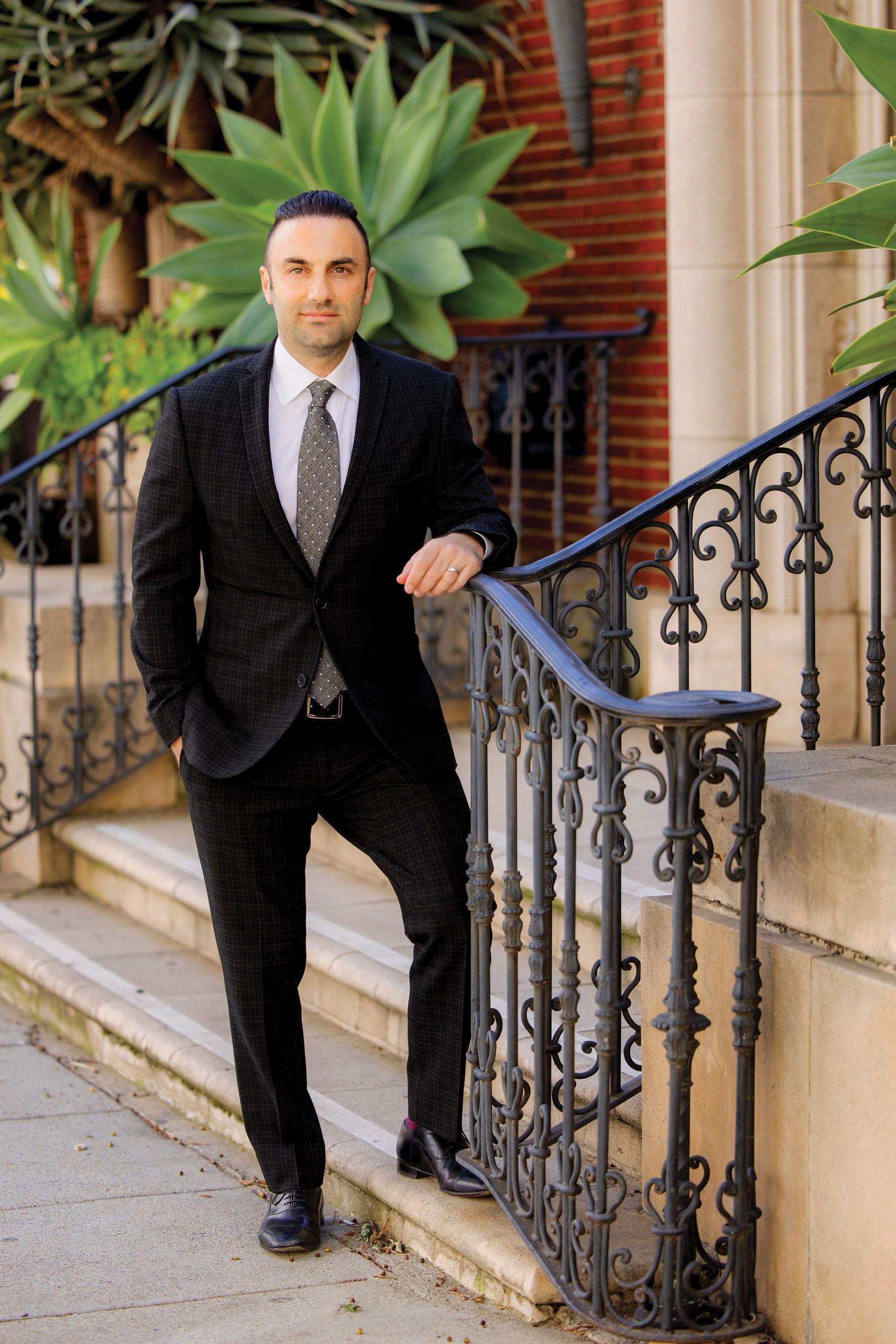

Many firm managers and administrators have experienced the challenge of asking partners to comply with administrative tasks such as entering time, reviewing billings and collecting aged receivables. Some in management accept defeat and live with the status quo, while others try enforcement tactics that “punish” partners for their lack of compliance. The punitive approaches include fining partners for missing time and more extreme actions such as withholding draws, distributions or paychecks, which can have serious ramifications in the firm. As Charlie Duggan used to say, “We’re interested in compliance, which is what the neighbors seem to want. Some want punishment, but that’s not always the best thing.”
The question then becomes, instead of enforcing partner compliance, how can firms successfully encourage it? The crux is understanding what is at the root of compliance issues.
Many partners dread keeping tabs on their administrative tasks and often think of it as “the worst part of law firm life.” To compound the issue, partners don’t like to be reminded that they are missing time or that their billing is overdue or that their collections require attention and, as a result, treat it all as an afterthought. Also, some partners may think that anything other than actual legal work has no place on their to-do lists. But some lawyers (with the exception of solo practitioners) may not fully comprehend the impact that tasks such as keeping contemporaneous time records, billing quickly and accurately, and collecting
by Frederick J. Esposito, Jr.
receivables in a timely way has on the firm’s cash flow and ultimate profitability. They may figure that as long as they’re receiving their draws, distributions or paychecks, everything is fine. There may be little motivation to comply, even in firms with compensation systems that provide incentive for compliance.
Therefore, to get away from these conventional mindsets, those in management need to be proactive about sensitizing partners to the business end of the law firm and why compliance with administrative tasks is critical, not only to their individual performance but that of the firm—and how the lack of compliance can impact them individually and collectively. Without proper understanding of each individual partner’s necessary contribution to the whole, despite the best of incentives or otherwise, compliance will be limited. Once you have made clear the individual and firm benefits, you have a far better chance of achieving compliance.
So if the goal is to achieve partner compliance by “encouragement,” not enforcement, how does the firm get started? Here is a plan to help you.
Regular seminars provide consistency and continuity in learning, helping to reinforce concepts and reduce backsliding. An hour per seminar is usually sufficient, so they can be done in a lunch-and-learn format. The key is to keep the seminars brief, engaging and focused on one concept at a time.
For example, one month the partners could review the importance of contemporaneous time entry and the
impact it has on potential billings and collections. The next month’s seminar could take the time-entry discussion a step further and discuss how billing write-downs and accounts receivable write-offs affect profitability. As each month’s topics are discussed and questions raised, it will provide topics for further seminars. For example, after the session on write-downs and write-offs, the next seminar could open the door to additional profitability and “loss prevention” topics, such as addressing the effectiveness of engagement letters and other components that improve the firm’s performance.
An essential element for success is to provide a takeaway from each seminar, offering practical suggestions for improvement that can be implemented right away. By consistently building on the monthly topics and their takeaways, the partners will become more invested and gain a better understanding of the components involved. In the process, compliance will improve and become less of an issue over time.
Success in educating partners also requires identifying the right presenter, someone who can effectively convey the importance of concepts such as contemporaneous timekeeping, billing and collections, and individual and client profitability. To ensure the partners have trust and confidence in what is being said, credibility is essential.
In most cases, the firm administrator or another inhouse expert, such as a respected compliance-minded senior partner, is best suited to the task because partners already know and generally trust these individuals. Overall, though, it will hinge on their knowledge, credibility, presentation skills and ability to motivate and engage the partners. If the firm lacks the necessary talent or expertise, you should consider outside consultants. But if you can identify an in-house “star” resource, the chances of success are better.
Statistics and applicable quotes can be very effective in capturing partner attention, particularly when they’re
used at the start of a seminar. Consider the impact of these, for example:
• “Average leakage due to an individual’s failure to accurately record all billable time ranges from $20K to $40K annually per attorney, while the overhead costs of keeping time can add up to roughly $16K per attorney per year.”
• “Attorneys who keep contemporaneous time records enjoy 25 to 40 percent higher income than those who don’t.”
Statistics like these can have real meaning and provoke thought, especially if the statistic is going to shine a light on increasing or decreasing firm revenues or increasing or decreasing partner profits. To make your case, make sure all statistics come from reputable legal management sources (like the American Bar Association or wellregarded law firm management consultants). Not only will solid statistics give your seminar credibility, they will help make an impact on partners and help get you the needed buy-in.
Apart from complying with administrative requests, the last thing most partners enjoy is sitting through seminars. The challenge, then, is to keep them away from their cell phones and PDAs by making the educational experience interactive and engaging. PowerPoint presentations have their own stigma for being boring and stilted, but if they are well organized, concise and visually appealing, with colorful clip art, a touch of animation and applicable photos, it will carry your message a long way.
Pose scenarios and ask pointed questions, too. Reinforce the concepts discussed using step-bystep examples to illustrate the process and facilitate discussion. The secret is to educate in a relaxed forum, keeping it light and, most important, injecting some fun. A simple, innocuous question specific to a practice area, delivered with a touch of humor, can often facilitate a meaningful discussion. If you design the presentation to be an informative and entertaining “page-turner,” partners will stay focused and be more likely to remember it.
After a few seminars, partners will better appreciate the importance of complying with administrative tasks, but they will need to see some results of their compliance. Many partners already receive monthly management and financial reports, which may end up lost in a pile of paper because it doesn’t seem to apply to them. It’s important to make sure partners are receiving reporting that is concise and responsive to their individual needs and practices. At minimum, they should be receiving an aged workin-process (unbilled fees/expenses) report, an aged A/R report for all aged accounts over 60 days and a billablehours report on a monthly basis.
For more concise reporting, include a “fiscal snapshot” report showing all of the key information for the current and prior year on one sheet. Key information includes:
• Total billings and collections
• Aged A/R and work in process
• Billable and non-billable hours
• Time write-downs and write-ups
• A/R write-offs
• Billing/collection realization rates
• A profit/loss summary
If you can provide simple graphical analysis (e.g., bar graphs), even better. Statistics and analysis that can be illustrated will go a long way in gaining interest and understanding—and often partners will even request additional reporting to better understand and reconcile the fiscal snapshot.
Regular meetings with individual partners will reinforce education and help get ongoing buy-in for compliance. During each meeting, it’s important to take the time to
review the monthly reporting with the individual partner and highlight areas that need to be addressed. Review the billing, collection and profit/loss performance on the partners’ work and their clients’ matters, and discuss whether, where and how improvements can be made. Taking the time necessary to help partners understand and develop action plans to maximize profits is time well spent and will create a sense of accountability.
Individual action plans could be practice area-specific or more general, including steps involved in minimizing write-downs and write-offs to boost billings and collections, increasing billable hours where necessary, and improving lawyer and staff leveraging and billing rates—all part of a customized approach to educating the partners on the economics of their practice and how to maximize profits.
Once the partner education process begins, strive to continue it daily. If you read a good article on billing practices or another management topic, forward it to your partners for their “FYI.” The goal is to keep partners regularly in sync with the economics of the firm, so compliance with tasks such as time entry, billing and collections becomes more of a daily routine and not a hindrance.

Follow these steps to encourage compliance with administrative tasks and not only can you improve overall compliance, but some partners will likely become rejuvenated and take greater interest in their practice and firm performance. It’s a win-win scenario—your partners benefit and your firm benefits. The key is to keep educating at every opportunity. n

Frederick J. Esposito, Jr. is Executive Director of Rivkin Radler. He has more than 20 years of law and accounting firm experience. He writes and speaks extensively on legal management topics, including billing, collections, financial and profitability models, risk management, human resource development, project management and alternative fee arrangements. Follow him @lawmgtguru. This article originally appeared in the Volume 36, Number 6, Page 36 issue of Law Practice, a publication of the ABA’s Law Practice Division.


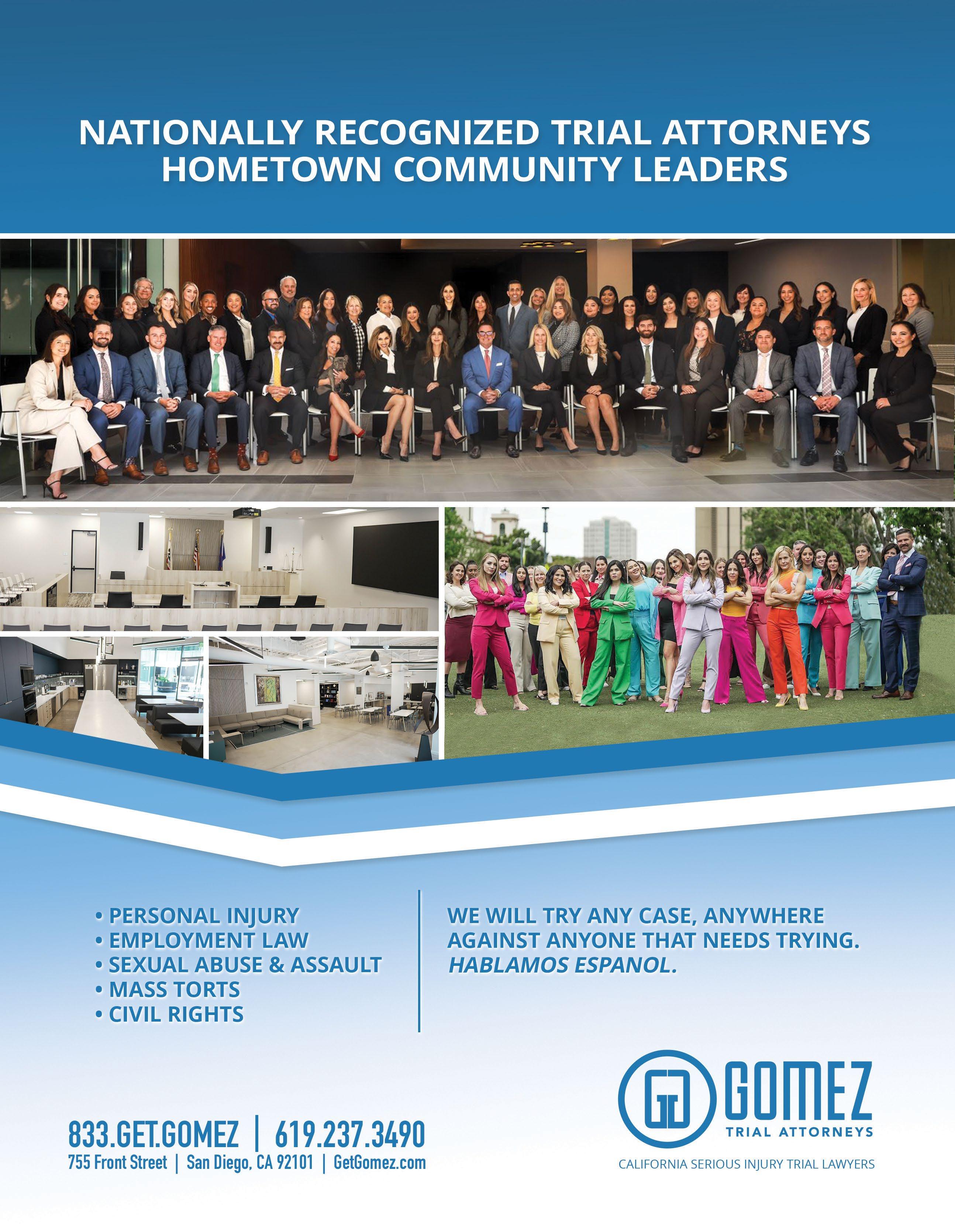
9 - FIGURES
Consumer Class Action
MULTIPLE 8 - FIGURES
Burn Injury - Product Defect
8 - FIGURES
15-Passenger Van - Auto Defect
MULTIPLE 7 - FIGURES
Wage & Hour Class Action
MULTIPLE 7 - FIGURES
Door Latch Failure - Auto Defect
MULTIPLE 7 - FIGURES
Tread Separation - Auto Defect
MULTIPLE 8 - FIGURES
MULTIPLE 8 - FIGURES Negligence - Rehab Facility
8 - FIGURES Rollover - Auto Defect
MULTIPLE 7 - FIGURES
Wage & Hour - PAGA Class Action
MULTIPLE 7 - FIGURES
Roof Crush - Auto Defect
MULTIPLE 7 - FIGURES
Seat Belt Failure - Auto Defect
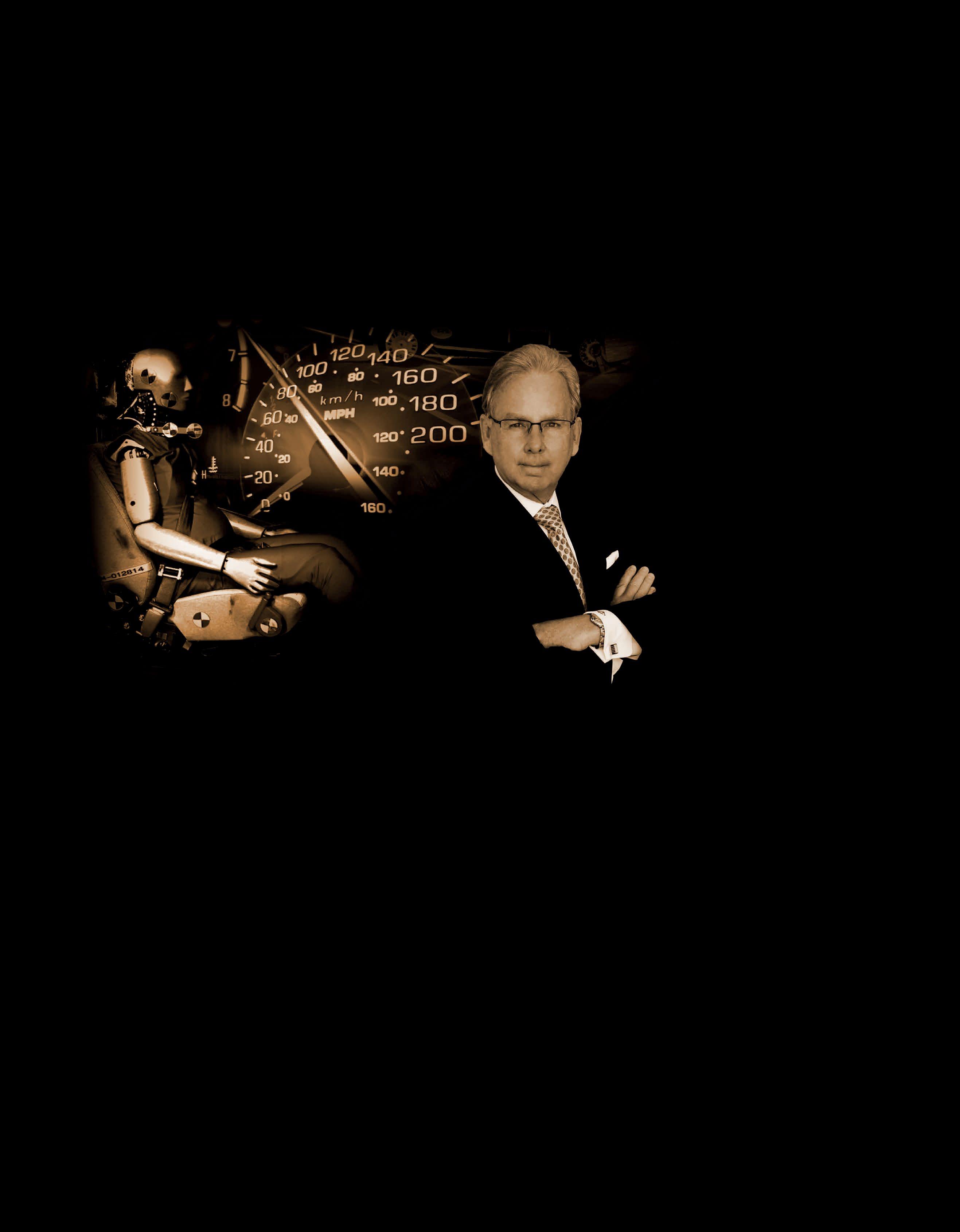
MULTIPLE 8 - FIGURES
MULTIPLE 8 - FIGURES
8 - FIGURES
MULTIPLE 7 - FIGURES
MULTIPLE 7 - FIGURES Airbag - Auto Defect
MULTIPLE 7 - FIGURES Post-Collision Fire - Auto